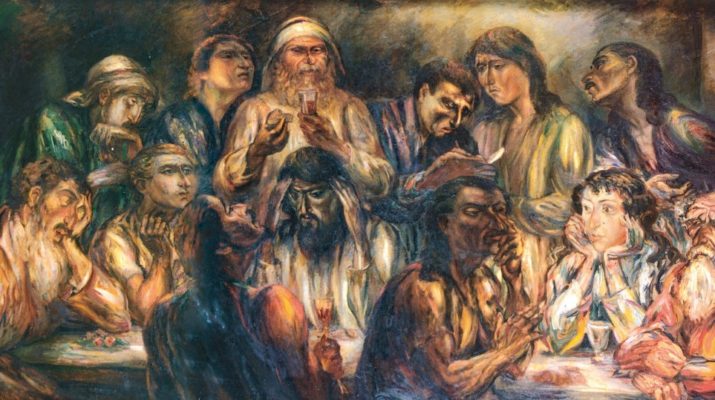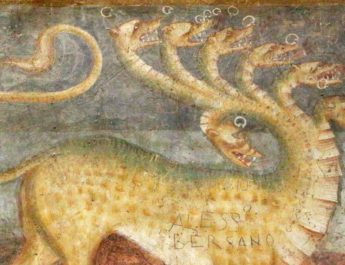E “given thanks” = eucharisteo. From eu (good, well, well done, rightly) + charis (grace, kindness, favor, gratitude, thanks; being inclined to or favorable towards – leaning towards someone to share some good or benefit; literal, figurative, or spiritual; grace as abstract concept, manner, or action); {from chairo (to rejoice, be glad; used to say hello; properly, delighting in the grace of God or experiencing God’s favor); from char– (to extend favor, lean towards, be inclined to be favorable towards)}. This is giving thanks, being thankful. It is a recognition that God’s grace is good and actively showing gratitude. It can also be used for saying grace before eating. This is where “eucharist” comes from.
F “body” = soma. Perhaps from sozo (to save, heal, rescue); from sos (safe, well, rescued). This is body or flesh. It can be body in a literal or figurative sense (as the body of Christ). This is where the word “somatic” comes from.
G “for” = huper. This is over, beyond, above. It can also mean on behalf of or for the sake of. Figuratively, it can be used for giving help to someone.
H “remembrance” = anamnesis. 4x in NT. From anamimnesko (to remind, admonish; to follow the path of memory); {from ana (up, again, among, anew) + mimnesko (to remind or remember; memory through an active, intentional process or being mindful; not incidentally or accidentally remembering); {from mnaomai (to remember; by implication give reward or consequence); perhaps from meno (to stay, abide, wait, endure)}}. This is intentional remembering to re-experience the effect of the event. It is active, motivated as a memorial.




